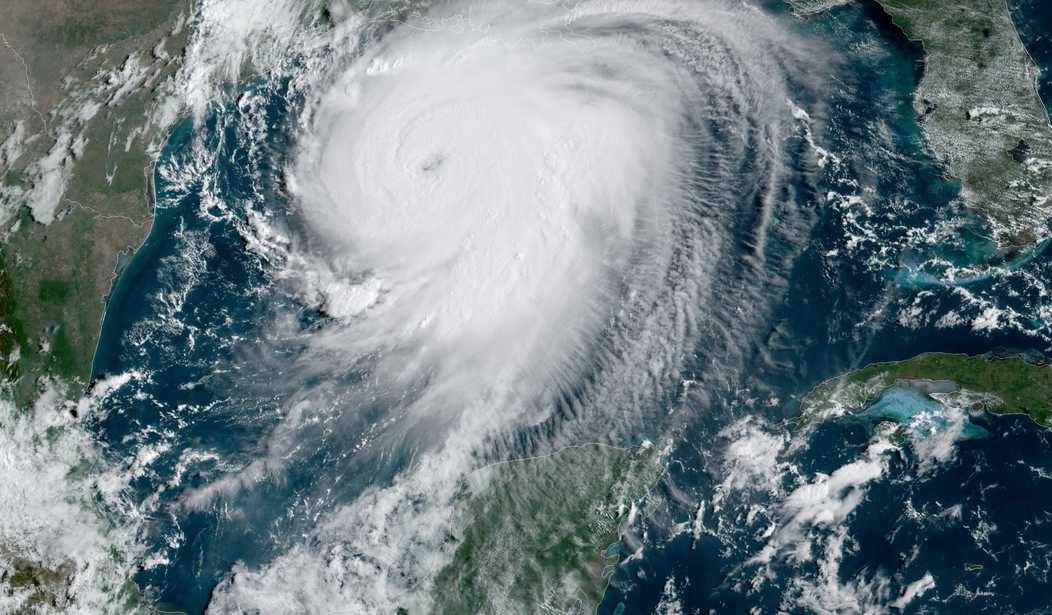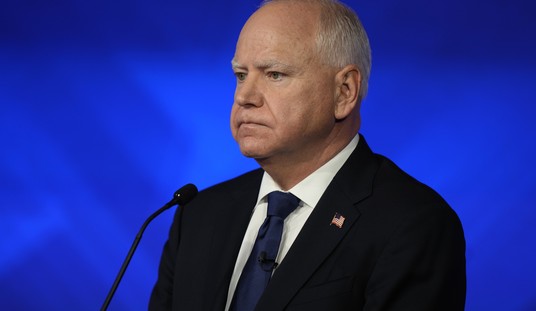One of the most important issues of our time is climate change, previously known as global warming. Now, this is part of the Left's agenda to dramatically transform our economy, in fact, the world economy, to deal with this supposed crisis. But is it a crisis? How serious of a crisis is it? Is the earth, in fact, warming? And how much? Is carbon dioxide responsible for that warming? Are human beings the culprits in the catastrophe of climate change? Are storms, hurricanes and forest fires the result of this warming? Is it the case that the oceans are rising, and we have to worry about the future of the coasts? What's really behind all this? And what, if anything, should we do about it? I was really happy to have a real legend, a great meteorologist, Dr. Neil Frank, sit down to talk with me.
Dr. Frank was the longtime director of the National Hurricane Center. In fact, I think he was the longest-standing director. He was also for many years the chief meteorologist for CBS affiliate KHOU TV here in Houston. He has his bachelor's degree in chemistry, his Master's and Ph.D. degrees in meteorology from Florida State University. And this is a guy who knows whatever you need to know about climate change.
Dinesh D'Souza (DD): Dr. Frank, thank you for being here. You know, Debbie is a super fan. She's seen you on TV over the years. I would have, except I was in California at the time. And I just got to start by saying I know that you are coming up on your 90th birthday.
Dr. Neil Frank (NF): Absolutely.
DD: Now, this is unbelievable because you visited our house and we chatted over the weekend. I was just thinking to myself, in fact, I was comparing you to Joe Biden. You're a decade older than Joe Biden. And yet, you're the very model of lucidity. You're also the model of health. I mean, we were worried, this studio is up on the second floor. And you're like, "Oh, no, I'll run up the stairs!" So let me just start by asking you, what's your secret?
Recommended
NF: Well, God has been good to me. There's no question about that. And I attribute the health to that point. Yeah, 9-11. I'm a 9-11 baby.
DD: Oh.
NF: Did you know that? Yeah, 9-11. And that's when I'll have my 90th birthday.
DD: Oh, my gosh.
NF: I have a granddaughter that was also a 9-11 baby, so a very special day.
DD: I want people to get to know you. And so, I want to start with your story. Now, I'm just doing my math, counting my way back. But since we're in 2021, you were probably born in 1931. And talk about that. Tell us about your background and also how you became interested in the subject of meteorology.
NF: Well, in 1931, you remember, we had the Dust Bowl. And then, in 1929, we had the major crisis.
DD: The Great Depression.
NF: Right! And I was born in northwest Kansas. And to say that we lived in poverty would be an understatement. It was unbelievable.
DD: What does that mean? Talk about that.
NF: Well, we had nothing. We had food because granddad had a farm, and he had livestock. So, we had meat. He had some chickens. And so we had the milk and eggs and things like that. So, the necessities of life, in other words, food, to survive, we did have that. But apart from that, we had nothing. It was unbelievable. I don't know why my folks stayed there. And literally, thousands and tens of thousands didn't. They got whatever they could get in their dilapidated car and headed to California.
DD: I remember reading John Steinbeck. "The Grapes of Wrath." The Okies all moving out West in search of gold. All that, wow, so that's amazing. So then what happened?
NF: Well, you know, I'd like to point out that when I was a pre-teen, to go to school, we always had our goggles with us because we never knew when one of these dust storms was gonna blow in, and we had to protect our eyes, and there was no paint. Everything was sandblasted. So there was no paint at all.
DD: So I think what you're getting at, implying here, is that when people talk about the fact that, "Oh, we've got dust storms today as we've never had before," what you're trying to say it was a lot worse, right?
NF: I was there.
DD: You were there.
NF: I was there.
DD: Now, how about meteorology? How did you get there?
NF: Well, I backdoored into meteorology. I started out in life to become a basketball coach. And I went out to college and played basketball for four years and tennis, with every intention of becoming a basketball coach. And the chemistry person was very interested in basketball. He came over to me and said, "Do you got a major in science?" And I said, "No, no, I'm not interested." And he said, "Yeah, but when you graduate, if you're a science major, you'll have a competitive edge over all of your friends who are physical-ed majors because they're always looking for science teachers."
DD: You wanted to be a coach?
NF: Yeah, I wanted to be a coach. But I could be the science teacher coach.
DD: Okay. Oh, interesting.
NF: So that's the way that I got into science. And then, when I was a senior in college, I found out the Air Force was looking for science majors to go into their meteorology program. So, I signed up real quick. They sent me to St. Louis University for a year. And then I ended up in Okinawa. Now, this little island in the western Pacific is famous for typhoons.
DD: Wow.
NF: The first summer I was on the island, I was in three typhoons. It's wild.
DD: So you began to see the power of these storms. And I guess, were fascinated. We all have a sense of awe when we see these incredible storms. And so you decided to make a career of it when you got out of the forces.
NF: Right. So when I left the Air Force, I decided I go back to graduate school. And I wanted to major in tropical meteorology. And that's why I ended up at Florida State.
DD: And you were at the National Hurricane Center, it looks like, for a long time?
NF: A long time.
DD: But you were director from 1974 to 1987. And then after that, for 20 years, it seems, the chief meteorologist at KHOU. I know in this town, right in Houston, you're a legend. In fact, the people in the studio were excited, "Oh my gosh, Dr. Frank is coming to the studio!" They were literally giddy.
Listen to the full interview below.

























